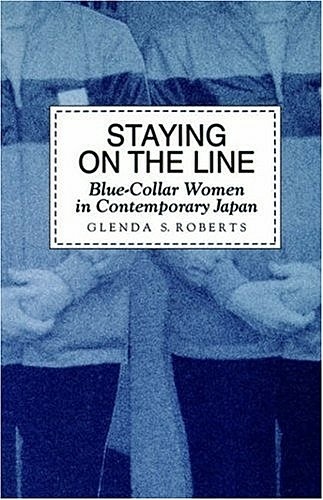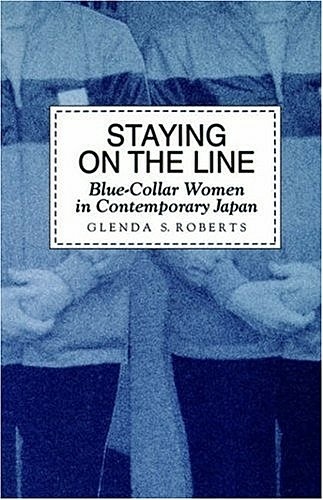Staying on the Line
Blue-Collar Women in Contemporary Japan
The traditional Japanese ideology of ryosai kenbo—good wife, wise mother—has relegated women to the home after marriage and childbirth. But in increasing numbers, Japanese women are choosing to remain in the workplace long past those milestones, despite the uneasy and sometimes hostile response of management to their persistence.
Glenda Roberts spent a year at a large garment manufacturer in the Kansai region of Japan, working on the assembly line and documenting the lives of her female coworkers. The result of that study is this persuasive, multilayered analysis of a vital but little-examined sector of the Japanese workforce—the female permanent blue-collar worker. Through the workers’ personal accounts and vignettes of factory life, Roberts examines why these women work, what satisfaction they find in remaining in the workforce, and how they meet the demands of work and household, caught in a contradiction between traditional sociocultural ideology and modern economic reality. Roberts’ portrait gives us the clear voices of these women, who work with quiet determination to achieve the culturally radical goal of lifetime employment, a goal traditionally available only to men.






